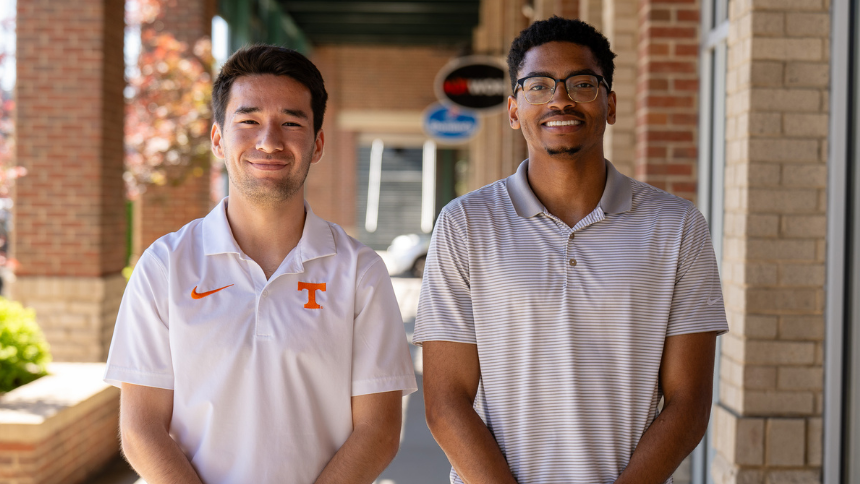Article from:

AluminAiry taking a more thoughtful approach
The focus has shifted from EVs to stationary power systems for residential or commercial use.
It’s not unusual for a start-up to make at least one pivot, and that is the case with the team at AluminAiry.
The company was co-founded by Brian Washington and Colt Griffith, both doctoral students at the University of Tennessee, Knoxville. They took the company through the Regional Mid-South Innovation Corps in the Spring Semester, and AluminAiry was selected to be part of the third cohort of the Spark Cleantech Accelerator that will wrap up its programming with pitches during the November 19 “Opportunities in Energy” event hosted by the Tennessee Advanced Energy Business Council.
Then, just a few weeks later, Washington expects to graduate with his Ph.D. and be able to devote full-time to AluminAiry.
So, how did the company pivot?
When Katelyn Biefeldt wrote about the Co-Founders’ plans in May, their focus was on electric vehicles (EVs). However, with the slowdown in EV sales, Washington says they are “taking a more thoughtful approach” that focuses on AluminAiry’s competitive advantage. They plan to focus on taking these systems to market for mobility applications through private governmental channels with agencies such as the Army Research Lab (ARL) and the Department of Defense (DOD) when opportunities present themselves.
“All we need is aluminum and air,” he says.
Now, instead of an alternative to an EV battery for commercial consumer use, the main focus of the company has shifted to stationary power systems for residential or commercial use. Their vision is a system that would not rely on the grid or gasoline for power, but instead rely on low-cost aluminum materials typically found in landfills or recycle centers.
“We want it to be sustainable,” Washington says of the aluminum-air technology.
He adds that the start-up has a minimum viable concept that is currently going through the prototyping phase. If all goes as planned, the minimum viable products could be ready by the end of 2025.
They have funded AluminAiry thus far through the Spark Cleantech Accelerator program and outside founder funding pathways.
Washington is also exploring a possible application for a Small Business Innovation Phase I award.
Like what you’ve read?